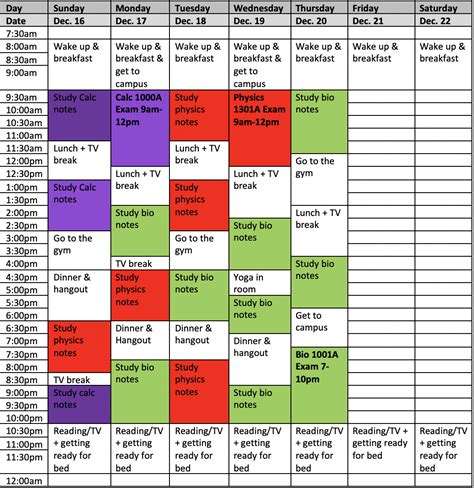Course planning: What is it all about?
Course planning is the process of organizing your academic schedule to meet your educational goals. It involves selecting courses, creating a study plan, and managing your time effectively. Effective course planning can help you:

- Achieve your academic goals
- Improve your time management skills
- Reduce stress
- Stay on track with your studies
How to plan your schedule
1. Set your goals
The first step in course planning is to set your goals. What do you want to achieve in your academic career? Do you want to earn a degree, get a job, or pursue further education? Once you know your goals, you can start to plan your schedule around them.
2. Research your options
Once you know your goals, you can start to research your options. What courses do you need to take? What are the prerequisites for those courses? What are the different course offerings? You can find this information in the university catalog.
3. Create a study plan
Once you have researched your options, you can start to create a study plan. This plan should include the courses you will take each semester, the order in which you will take them, and the amount of time you will spend studying each week.
4. Manage your time effectively
Once you have a study plan, you need to manage your time effectively to stay on track. This means setting priorities, creating a schedule, and sticking to it.
5. Get help when you need it
If you are struggling with course planning, don’t be afraid to get help. You can talk to your academic advisor, a tutor, or a counselor.
Common mistakes to avoid
There are a few common mistakes to avoid when planning your schedule. These include:
- Overloading your schedule. Don’t try to take too many courses at once. This will only lead to stress and burnout.
- Not planning ahead. Don’t wait until the last minute to start planning your schedule. This will make it more difficult to find the courses you want and to create a schedule that works for you.
- Ignoring your goals. Don’t let your schedule dictate your goals. Your goals should be the driving force behind your schedule.
- Not being flexible. Things don’t always go according to plan. Be prepared to adjust your schedule as needed.
Tips for success
Here are a few tips for success in course planning:
- Set realistic goals. Don’t try to achieve too much too quickly. Start with a few small goals and work your way up from there.
- Be organized. Keep track of your courses, assignments, and deadlines in a planner or calendar.
- Break down large tasks into smaller ones. This will make them seem less daunting and more manageable.
- Set priorities. Decide which tasks are most important and focus on those first.
- Delegate tasks. If you can, delegate tasks to others to free up your time.
- Take breaks. It is important to take breaks throughout the day to avoid burnout.
- Reward yourself. When you achieve a goal, reward yourself to stay motivated.
Conclusion
Course planning is an important part of academic success. If you take the time to plan your schedule carefully, you can increase your chances of achieving your goals.
